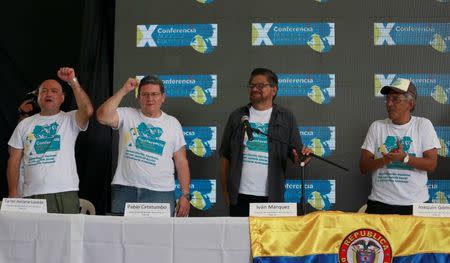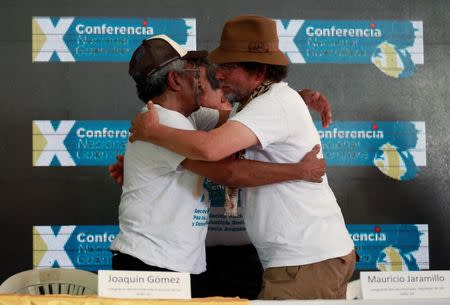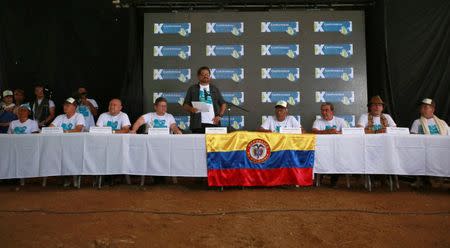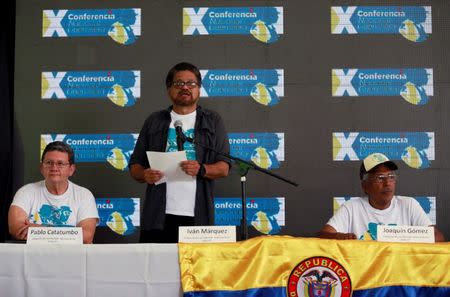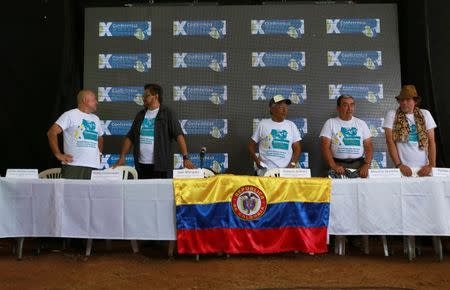Colombia's FARC rebels ratify peace accord to end 52-year war
By Julia Symmes Cobb YARI PLAINS, Colombia (Reuters) - Colombia's FARC rebel group voted unanimously to approve a peace deal with the government on Friday, declaring an end to the five-decade war as it prepares to transition into a new political party. After four years of negotiations in Havana, the government and the Revolutionary Armed Forces of Colombia reached a final peace accord last month that will end a war that has left a quarter of a million people dead. "The war is over, long live Colombia, long live peace," FARC commander Ivan Marquez told reporters following a secret vote at the close of a guerrilla congress on the southern Yari Plains. As part of the agreement, the FARC will continue to push for social change as a political party, receiving 10 unelected seats in congress until 2026. The leadership of the FARC has so far been coy on policy details but are expected soon to morph into a party rooted in Marxist ideals. Two-hundred delegates from FARC units around the country gathered at the Yari site, five hours by rutted road from the nearest provincial town, to review the accord and discuss re-organization in peacetime. "We inform the country and the government and the governments and people of the world that the rebel delegates of the congress have given unanimous backing to the final accord," Marquez said. The peace accord is due to be signed on Monday by President Juan Manuel Santos and rebel leader Timochenko. Colombians will vote on the deal in an Oct. 2 plebiscite, the final go-ahead for rebels to demobilize. Polls show the accord will easily pass. The congress, the first ever open to media, marks the group's final meeting as a guerrilla army and will end with a music concert with non-FARC performers. Previous congresses, to decide battle strategy, were sometimes held via internet due to military offensives that prevented leaders from meeting. Although both leadership and rank and file fighters say they will prioritize political activism as civilians, the group has so far not provided examples of specific policies. "Our initial platform is the implementation of the Havana accords," Pastor Alape, a member of the FARC's secretariat, told Reuters at the congress. "Our political proposals will have to come from the suggestions of our base. "We started our political efforts clandestinely and now we aspire, legally, to open our initiatives, together with all sectors of society, to concretely cultivate the political space we are given," Alape said. The five-point peace accord covers agricultural reform, an end to the illegal drugs trade, victims' reparations, FARC political participation and demobilization. Policies are being drafted and will be revealed in due time, FARC commander Bertulfo Alvarez told a news conference during the congress, when asked by Reuters to give examples of policy initiatives. One mid-level rebel fighter said the group wants to decentralize Colombia's government, including halving the size of Congress, in a bid to combat corruption and ensure communities have control over distribution of royalties from oil and mining projects. The FARC may find an electoral foothold among poor farmers and committed leftists, but many Colombians are wary that ex-fighters will join criminal gangs. (Reporting by Julia Symmes Cobb; Editing by Richard Chang and Sandra Maler)

